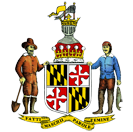| Chapter 33. Entitled "An ACT for establishing a
company for opening and extending
the navigation of the river
Patowmack." [Designed to make it
navigable from "tide water to the
highest place practicable on the north
branch." Act notes that it will be
necessary to "erect locks and other
works on both sides of the river, and
the legislatures of Virginia and
Maryland, impressed with the
importance of the object, are desirous
of encouraging so useful an
undertaking." In Article IV, the Act
refers again to making the river
navigable from "tide water to the
highest part of the north branch to
which navigation can be extended."
Canals exempt from taxation; can
charge tolls. Article X declares that
"the said river, and the works to be
erected thereon in virtue of this act,
when completed, shall for ever
tereafter be esteemed and taken to be
navigabel as a public highway"
subject only to the tolls established in
the Act. No other tax or tolls "for the
use of the water of the said river, and
the works thereon erected, shall at any
time be imposed by both or either of
the said states," subject to concurrent
regulation re: toll evasion or prohibited
goods. Condemnation power. Article
XIII states that "it is the intention of
this act not to interfere with private
property, but for the purpose of
improving and perfecting the saide
navigation" and that the "water, or any
part thereof, conveyed through any
canal or cut . . . shall not be used for
any purpose but navigation, unless
the cosent of the proprietors of the
land through which the same shall be
led be first had." The Company is
directed to do their best to
accommodate other, private uses of
the water. Act not effective until
Virginia does the same. abstract, as 9/00]
[The evidence is compelling and complete that those who were engaged in the negotiations for the passage of this law and the subsequent meeting at Mt. Vernon the following Spring, considered the Potomac above tidwater to be a separate and distinct issue from tidwater Potomac. The Potomac Canal legislation addressed the Potomac above tidewater. The Compact of 1785 addressed the tidewater and the tidewater alone, having entrusted the navigation of the Potomac above tidewater to a company jointly supported and authorized by the legislatures of both Maryland and Virginia. George Washington actively presided over the first efforts to promote improvement of the navigation of the Potomac above tidewater. He nominally presided over the second,leaving it to his neighbor, George Mason and others to deal with the issues of trade and fishing on the already navigable parts of the river. As Washington explained to Lafayette, he found himself unexpectedly back in Annapolis in December 1784, where he presided over the commission that recommended the legislation subsequently passed, first by Maryland and then by Virginia. The proceedings of the meeting on the proposed Potomac Canal legislation, were printed in the Journal of the Maryland House of Delegates. It is clear from the proceedings (pp. 63-64) that passage was contingent upon Virginia repealing a law which had asserted her jurisdiction over the Potomac: "That it is the opinion of this conference, that an act of assembly of Virginia for opening and extending the navigation of the river Patowmack, from Fort Cumberland to the tide water, ought to be repealed." (V&P, p. 64).; Virginia did so and concurred with the recommendations of the conference by passing this act, already passed by Maryland. Once this act was passed, the issue of who had the right to manage the navigation and the use of the waters above tide water was resolved in favor of the Potomac Company and its successor, the C&O Canal, within the limits of the law,
and otherwise to the State of Maryland. There are a plethora of court cases that establish this fact indisputably. The Canal company, in turn, always sought relief and generally got it, in the Maryland Courts and through the Maryland land system. The company condemned all but the fast land above highwater mark on the Virginia shore in Maryland courts. The company always proceeded and succeeded on the assumption that any riparian rights in the River were vested in Maryland owners holding title under Maryland patents and patent law. There are countless patents in Maryland to land under the Potomac and the islands in the Potomac, all of which are amply documented on this site. There are none in Virginia that have been sustained by the courts in either state. The fact that all legal proceedings with regard to the management and ownership of the river (save arguments over the fast land on the Virginia shore above the high or low water marks) were solely within the jurisdiction of the Maryland Courts, subject of course, to appeal to Federal Courts when one party was the Federal Government,is made abundantly clear in a complex series of cases involving the whole of the river in and around great falls concerning the Great Falls Manufacturing Company and the water supply for the District of Columbia. The outcome of these cases which were argued from the middle of the nineteenth century until the near present has consistently been in favor of Maryland's ownership of the whole of the Potomac, and in favor of Maryland's right to regulate the waters of the Potomac. From 1785 to the advent of this case by the State of Virginia the
practical effect of this law has been that any relief with regard to purported
riparian rights of owners of land along the Potomac and the Potomac's north branch
have always been addressed in Maryland courts or referred to Maryland courts, and not
withstanding the dicta of the Arbitrators in the Black/Jenkins award and in the cases
involving Maryland's boundary with West Virginia, the Compact of 1785 (even as revised
in 1958) has no effect or bearing on the Potomac above tidewater. ecp 12/7/00]
Virginia exhibit 17 |
